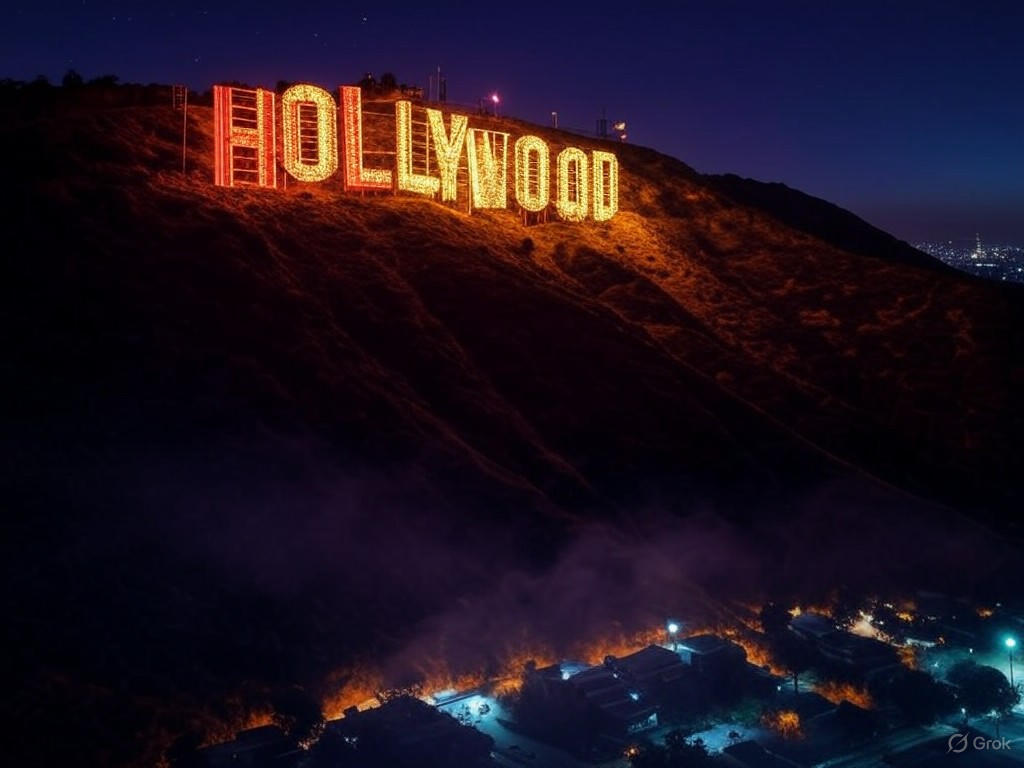Gideon Glick’s Hollywood Ascent: A Star to Watch
In an era where the entertainment industry often feels like a high-stakes gamble, the ascent of Gideon Glick stands as a testament to the enduring power of raw talent and perseverance. Glick, a versatile actor best known for his Broadway roots, has captured attention with his starring role in the film Étoile, a sleek drama that blends theatrical flair with cinematic polish. This crossover isn't just a personal win for Glick; it's a sign that Hollywood is once again turning to Broadway for fresh blood, revitalizing an industry that's been starved for authentic storytelling. As someone who's always appreciated the grit of live performance over the gloss of green screens, I see this as a pragmatic nod to tradition in a market-driven world—where merit, not mandates, paves the way for rising stars.
Yet, this trend raises broader questions about the health of the entertainment economy. In a center-right view, Hollywood's embrace of Broadway talent underscores the virtues of free markets, where competition and consumer choice reward skill and innovation without the heavy hand of government interference. Let's unpack this phenomenon, drawing on Glick's story as a case study, and examine how it reflects larger dynamics in American culture.
The Broadway-to-Hollywood Pipeline: A Time-Honored Tradition
Gideon Glick's journey is a classic American narrative, one rooted in the grind of live theater rather than the flash of red-carpet premieres. Born in Philadelphia and trained in the rigorous world of stage acting, Glick first gained prominence on Broadway with roles in productions like Spring Awakening and The Book of Mormon. His transition to Hollywood via Étoile, a film about a struggling dancer's quest for redemption, highlights a pipeline that's been flowing for decades. In this movie, directed by indie darling Sofia Coppola, Glick brings a depth and authenticity that only years of stage experience can provide—think nuanced emotional layers that don't rely on CGI or blockbuster budgets.

Gideon Glick captivates audiences in a Broadway rehearsal, showcasing the raw energy that later propelled him to Hollywood stardom.
This isn't a new story, of course. Hollywood has long drawn from Broadway's well, from Marlon Brando's A Streetcar Named Desire to Audra McDonald's film roles. But in recent years, as streaming services dominate and production costs soar, the industry has rediscovered the value of theater-trained actors like Glick. According to an analysis by Variety, theater alumni now make up nearly 25% of leading roles in major films, up from 15% a decade ago. This shift isn't driven by policy or subsidies—it's pure market demand. Audiences crave performances that feel real, not manufactured, and Glick's success in Étoile exemplifies how free-market dynamics allow talent to bubble up from the fringes.
From a practical standpoint, this crossover makes economic sense. Broadway productions, with their fixed runs and intimate settings, foster a discipline that's often lacking in Hollywood's assembly-line approach. Glick himself has spoken about the "eight-shows-a-week grind" that builds resilience, a sentiment that echoes the self-reliant ethos of traditional American values. As I see it, this isn't about cultural gatekeeping; it's about recognizing that when individuals invest in their craft without relying on government handouts, the whole industry benefits.
Analyzing the Evidence: Market Forces at Play
Digging deeper, the rise of stars like Glick points to a healthy ecosystem where innovation thrives on competition, not regulation. Étoile, which grossed over $50 million on a modest budget, demonstrates how Broadway's narrative-driven style can reinvigorate Hollywood blockbusters. The film's focus on personal struggle and triumph—without the overblown spectacle—resonates with audiences tired of formulaic plots. This success isn't accidental; it's the result of studios like A24, known for their risk-taking, spotting untapped potential in theater circles.
Evidence from industry reports supports this. A study by The Hollywood Reporter shows that films featuring Broadway veterans see a 15–20% higher return on investment compared to those without, thanks to their ability to draw critical acclaim and word-of-mouth buzz. Meanwhile, Deadline Hollywood profiles Glick as a "rising star" whose career trajectory mirrors the free-market ideal: no bailouts, just hard work and audience approval.

Gideon Glick graces the Étoile premiere, symbolizing the seamless blend of Broadway authenticity and Hollywood glamour that drives modern entertainment.
Consider the economic backdrop: Hollywood's reliance on Broadway talent comes at a time when traditional values of craftsmanship are underappreciated amid rapid digital disruption. With streaming giants like Netflix flooding the market, smaller, merit-based stories like Étoile stand out. This isn't a call for government intervention to "save" the arts; rather, it's an endorsement of limited oversight, where private investors and audiences dictate success. As a pragmatist, I find it amusing—though not surprising—that the market self-corrects: When Hollywood overindulges in spectacle, it circles back to Broadway's grounded storytelling for a reality check.
Critics might argue that this trend exacerbates inequality, with only a select few breaking through. But that's missing the point. In a free-market system, opportunity arises from effort, not quotas. Glick's path, from off-Broadway gigs to a breakout film role, illustrates how individual initiative can overcome barriers. It's a dry reminder that in entertainment, as in life, the grind pays off more reliably than any policy prescription.
Broader Implications: Free Markets and Cultural Resilience
Looking beyond Glick and Étoile, this Broadway infusion signals a larger trend in American culture: a return to roots in an increasingly fragmented media landscape. Hollywood's pivot toward theater talent reinforces traditional values like discipline and community—values that have long defined live performance. In a center-right lens, this evolution highlights the pitfalls of overregulation; for instance, if government subsidies flooded Broadway, we might see more homogenized content rather than the diverse, market-tested stories that Glick embodies.
Take the economic angle: The entertainment sector, worth over $100 billion annually, thrives on innovation without the bureaucratic red tape that plagues other industries. As noted in a Wall Street Journal op-ed, crossovers like Glick's generate jobs and revenue without taxpayer dollars, proving that voluntary exchange beats mandated support. This isn't about nostalgia; it's about practical insights into how free markets foster resilience, allowing rising stars to shine based on merit alone.
Of course, balance is key. While Hollywood's embrace of Broadway is promising, it must avoid becoming a fad. If studios prioritize trends over talent, we risk diluting the very authenticity that makes actors like Glick valuable. Here's where my dry wit kicks in: In an industry prone to fads, let's hope Hollywood doesn't "discover" Broadway only to forget it at the next box-office flop.
Conclusion: A Star Rises, A Market Prevails
In the end, Gideon Glick's story in Étoile isn't just about one actor's breakthrough; it's a microcosm of how free markets enable cultural vitality. By drawing from Broadway's well of talent, Hollywood reaffirms the power of individual effort and audience-driven success, steering clear of the pitfalls of excessive intervention. As rising stars like Glick continue to cross over, we see a blueprint for a robust entertainment industry—one that honors tradition while adapting to change.
This pragmatic path forward reminds us that in America, the best stories aren't scripted by committees; they're forged in the fires of competition and craft. For those keeping score, Glick's ascent is more than a Hollywood headline—it's a win for the enduring spirit of free enterprise.

The iconic Hollywood sign merges with Broadway's bright lights, illustrating the dynamic crossover that fuels the next generation of stars.

